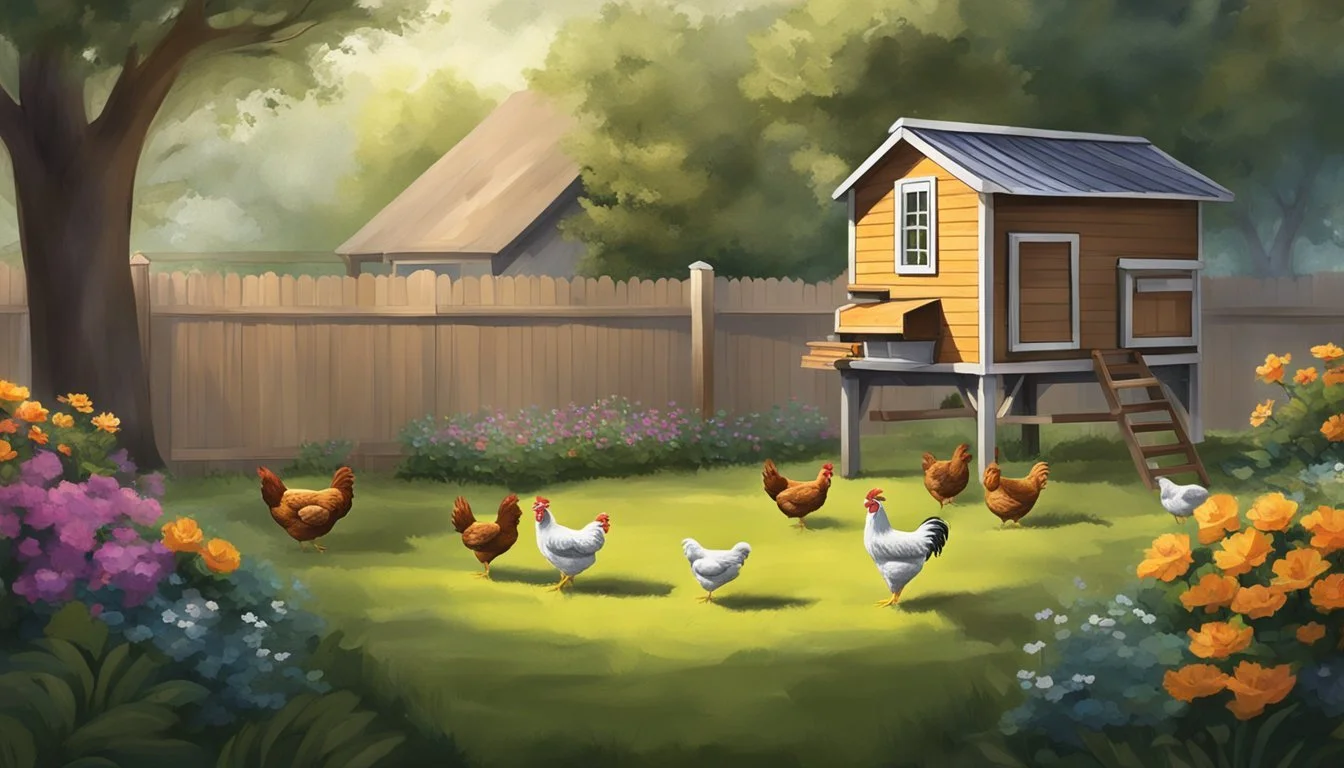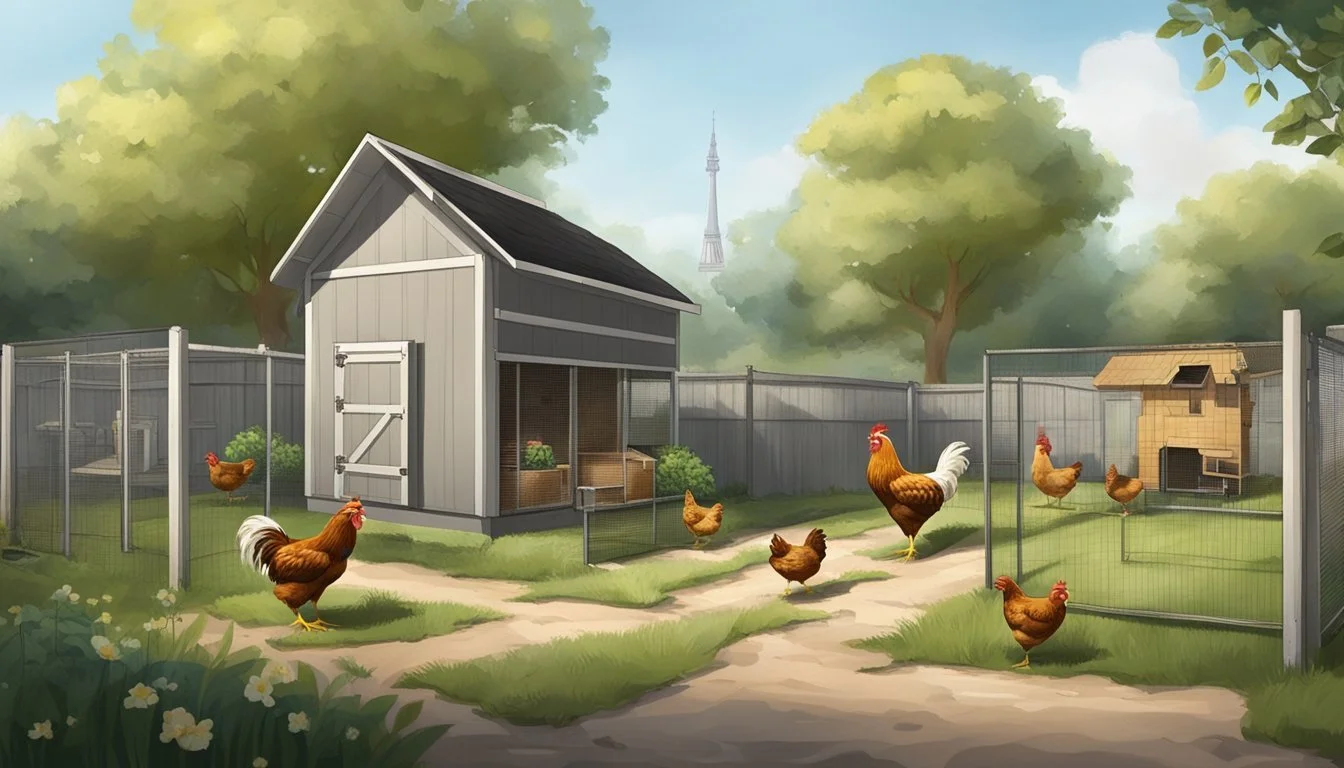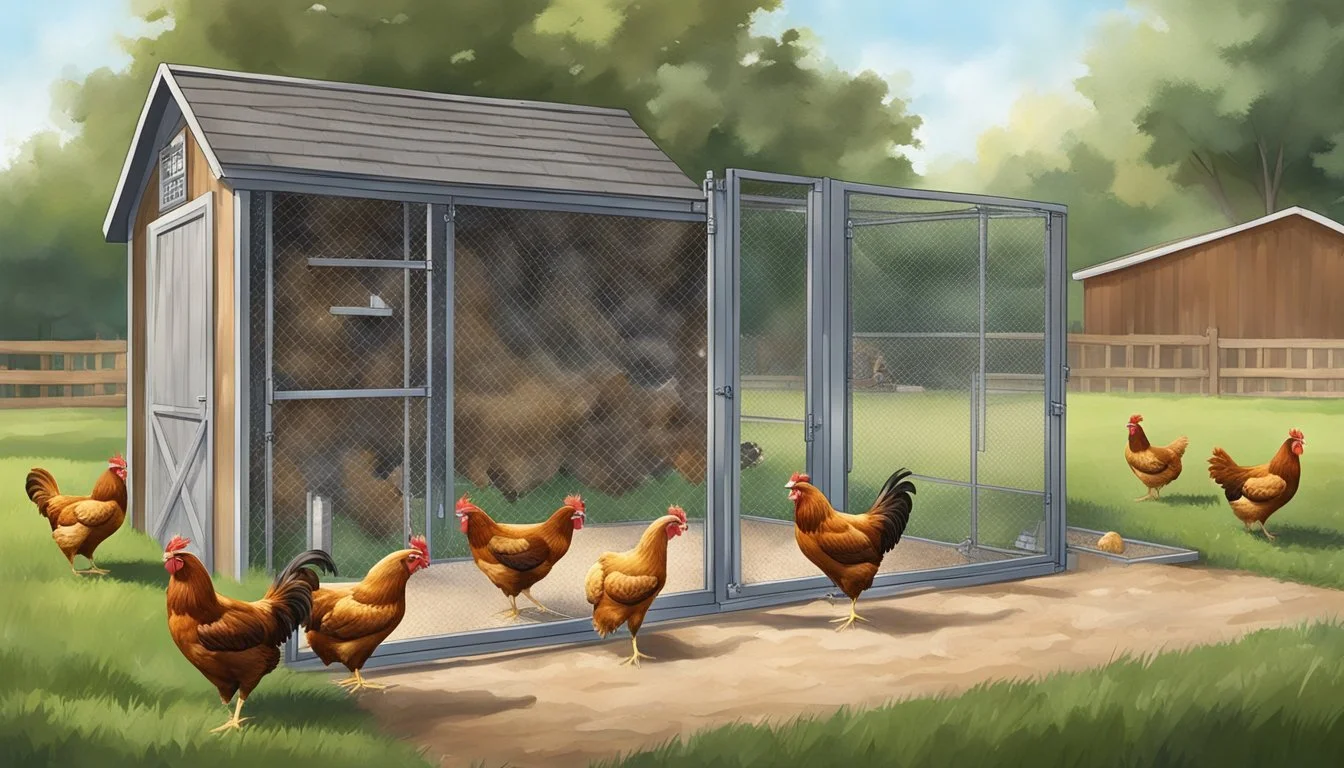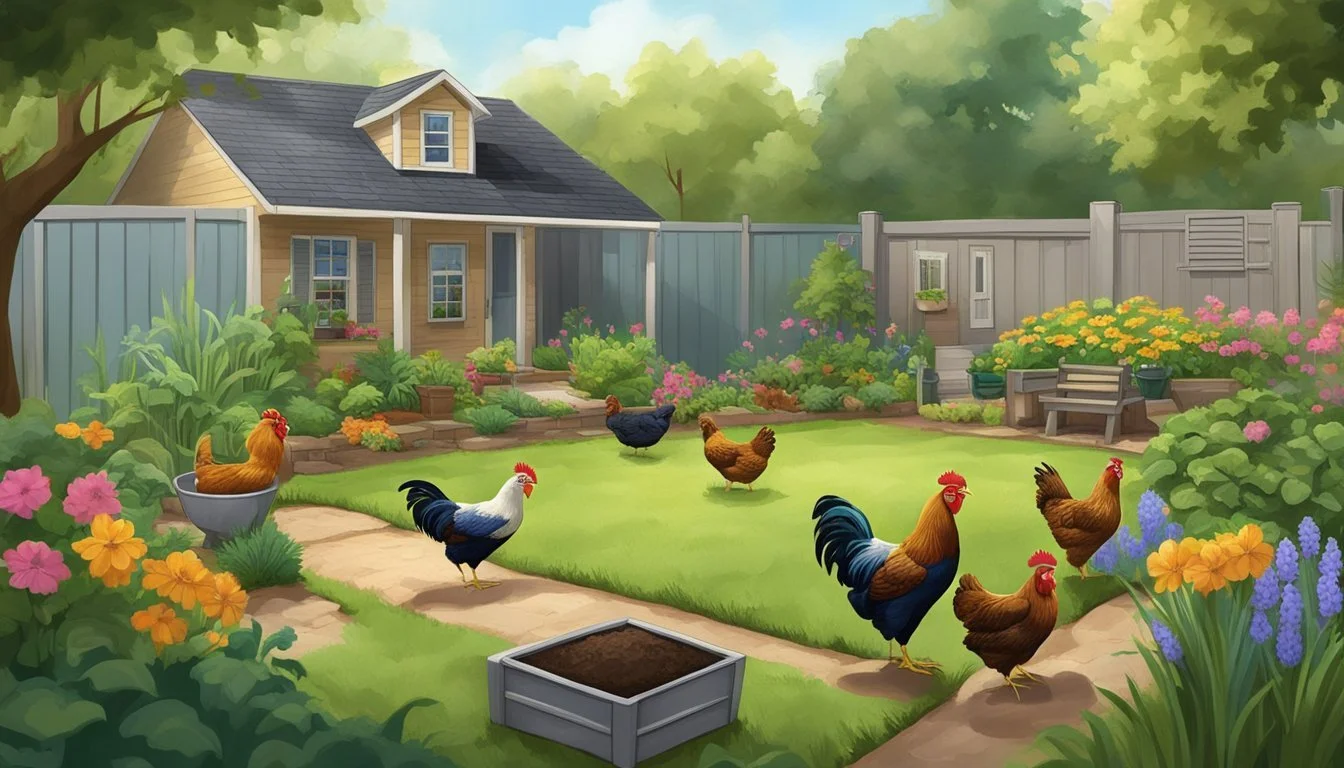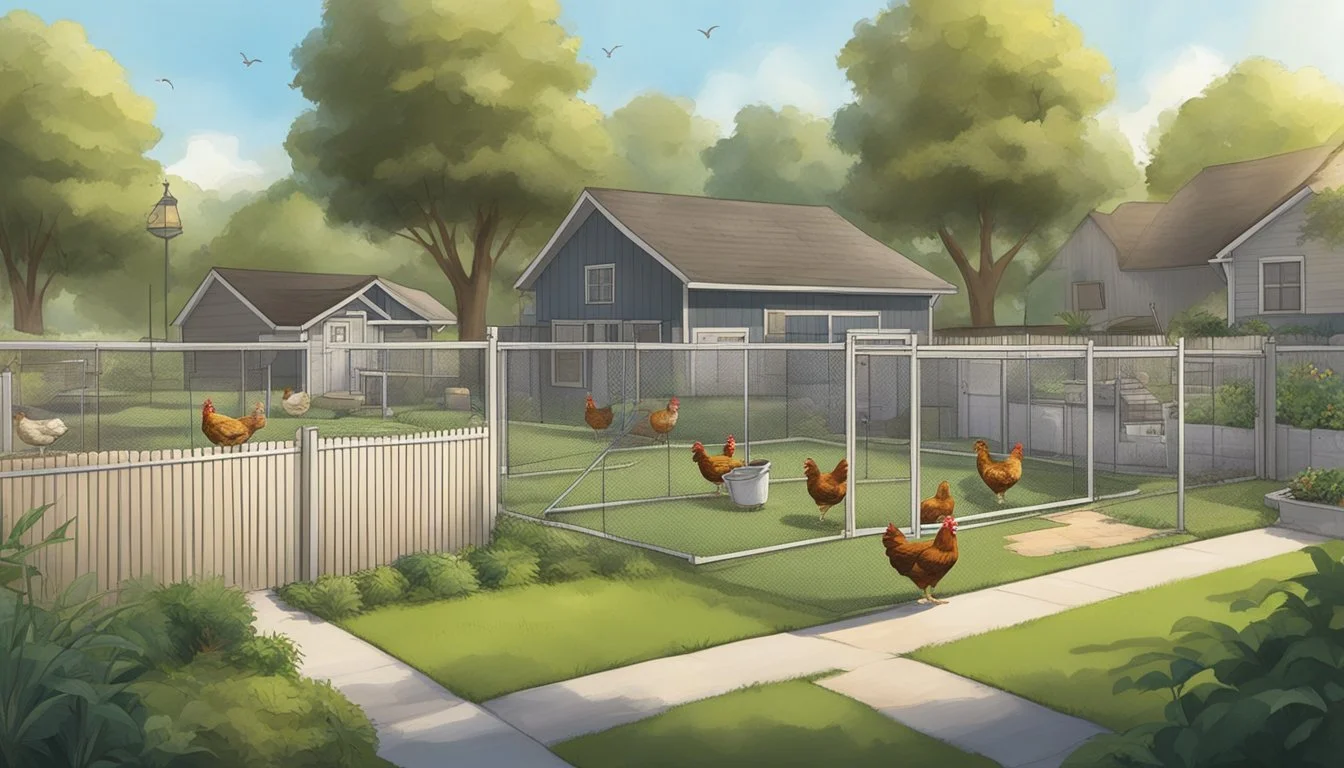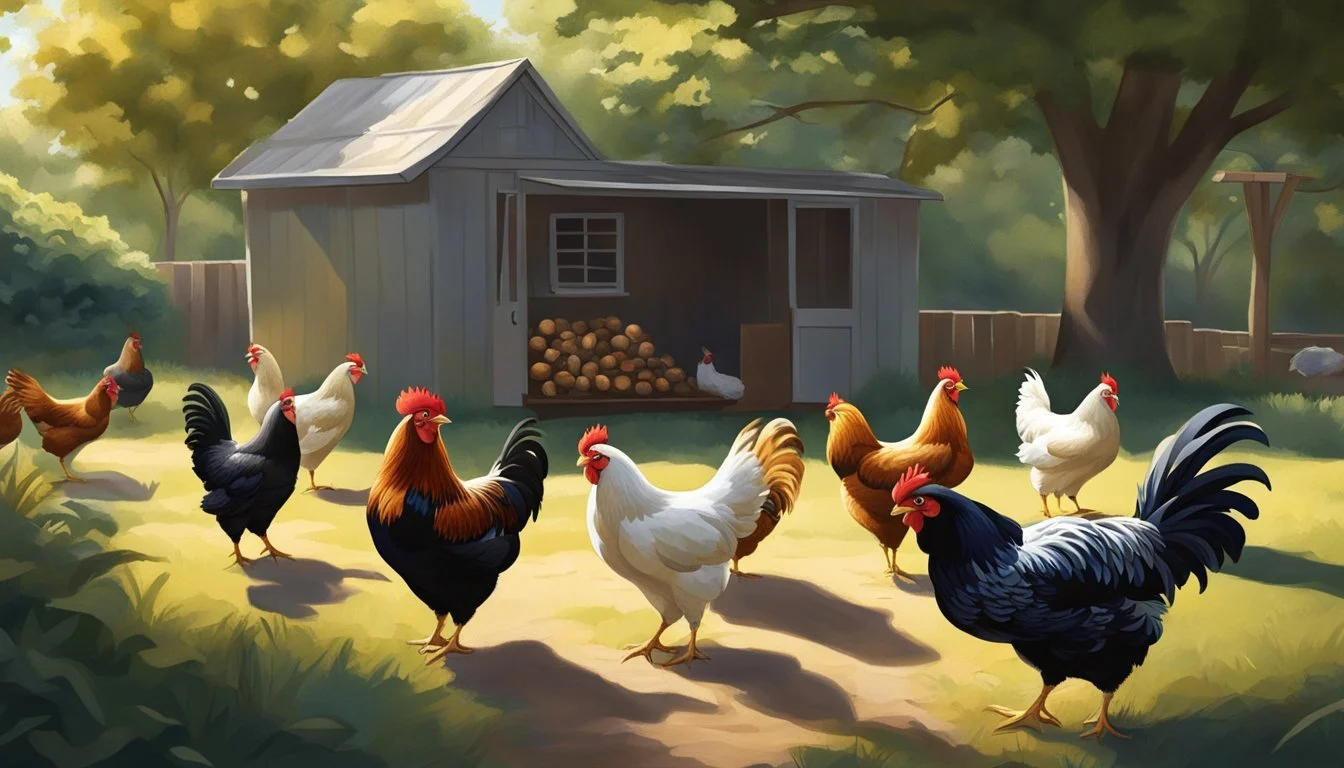Keeping Backyard Chickens in League City, TX
Essential Tips for Success
Keeping backyard chickens has become an increasingly popular practice among residents seeking a more sustainable lifestyle and desiring fresh eggs. In League City, Texas, there is a specific set of ordinances that govern the keeping of such poultry to ensure the welfare of the animals and to maintain neighborhood harmony. Prospective and current chicken owners in League City are strongly advised to consult with local regulations, as these ordinances cover a variety of important topics including animal nuisances, housing requirements, occupancy limits, and other pertinent factors.
The city's Animal Protection rules, which are enforced by the League City Police Department, aim to balance the interests of urban chicken enthusiasts with the rights of other residents. It is crucial for individuals interested in raising backyard chickens to understand these regulations before setting up their own coop. Texas cities vary widely in their approach to backyard poultry, and League City's approach offers a structured yet accommodating environment for people looking to integrate chickens into their backyards.
Prior to getting started, chicken keepers should be aware that apart from city regulations, neighborhood associations may have additional restrictions or bylaws that need to be adhered to. It is essential for residents to perform due diligence in checking with these local entities to ensure full compliance. A thorough understanding of both city ordinances and any supplemental rules will provide the foundation for successfully and legally raising backyard chickens in League City.
Understanding Local Ordinances
When considering raising backyard chickens in League City, it's essential to be well-informed about the relevant local ordinances to ensure compliance and avoid legal issues.
League City Regulations
In League City, specific city ordinances pertain to the keeping of backyard chickens. These regulations stipulate that residents must keep their chickens more than 50 feet away from other residences. This requirement is in place to minimize nuisances such as noise and odors to neighboring properties.
Comparison with Texas Cities
City ordinances regarding backyard chickens vary across Texas. For example, Dallas allows the keeping of chickens with certain restrictions on the number of birds and coop placement. San Antonio also permits chickens but includes different space and care requirements. Houston has its unique set of regulations for urban poultry. The backyard chicken laws of each Texas city have been tailored to fit the needs and concerns of their respective communities, with League City's regulations being notably specific about the distance of coops from neighboring residences.
Keeping Backyard Chickens Legalities
To legally keep backyard chickens in League City, one must adhere to the city's ordinances. It's important to note that while there are no specific state laws regulating the keeping of backyard fowl in Texas, the responsibility falls on the municipality to set appropriate guidelines. Obtaining the necessary permits, if required by the city, and ensuring that one's chicken coop meets all the specified regulations will help prevent potential legal issues and contribute to a harmonious urban farming experience.
Setting Up Your Backyard for Chickens
When preparing a backyard in League City, Texas for raising chickens, one needs to consider the local regulations and the coop's security and comfort. Proper planning ensures the health and safety of the chickens while also respecting the peace of the local residents.
Choosing the Right Coop
The choice of a chicken coop must take into account both the available space and the number of chickens one intends to keep. According to League City regulations, chickens must be kept a certain distance from other residences, which influences the size and placement of the coop. Here's a simple guideline:
For smaller lots (4,900 sq ft): Up to 2 hens
For larger lots (6,600 sq ft): Up to 7 hens
Roosters are prohibited on lots smaller than 1 acre
The coop must provide ample space for each bird, usually 2-3 square feet inside the coop and 8-10 square feet in the run. It should also be sturdy, well-ventilated, and easy to clean to maintain the chickens' health.
Protecting Against Predators
Predators such as dogs, cats, and wild fowl are a serious threat to backyard chickens. The coop and chicken run must be secured with predator-proof measures. This includes:
Hardware cloth or fencing that is buried at least 12 inches underground to prevent digging predators.
Covers for runs to protect against birds of prey.
Locks on coop doors to deter raccoons and other intelligent pests.
By taking such precautions, not only does one protects the chickens but also prevents potential conflicts with neighbors and complies with local health and safety regulations. Communication with the homeowners' association (HOA) can provide additional guidelines on keeping backyard chickens in harmonious coexistence with the community.
Chicken Care and Management
Keeping backyard chickens in League City, Texas, requires an understanding of proper care and management practices to ensure the poultry remain healthy, productive, and comfortable, especially in the Texas heat.
Feeding and Nutrition
Chickens need a balanced diet to lay high-quality eggs and maintain good health. Owners should provide a mix of commercial poultry feed, which is specially formulated with the necessary proteins, vitamins, and minerals. Layer pellets or crumbles are ideal for egg-laying hens. Additionally, chickens can be given kitchen scraps and garden produce, but these should not exceed 10% of their diet. It's vital to ensure clean water is available at all times.
Key components of chicken feed:
Protein (16-18% for layers)
Calcium (for shell strength)
Grains (energy source)
Grit (for digestion)
Health and Wellness
Regular health checks for signs of disease or parasites are crucial for backyard chickens. Familiarity with common poultry diseases and timely vaccinations can prevent outbreaks. Chickens should have access to a clean, dry, and ventilated coop. Nesting boxes should be kept with fresh straw or shavings, encouraging hens to lay there and keep eggs clean. Owners should watch for signs of distress or illness, including changes in eating or laying habits, respiratory issues, or lethargy.
Handling Hot Climate Conditions
League City's hot climate poses challenges for backyard chickens, which can suffer from heat stress. Providing ample shade and ventilation in the coop is necessary. During peak summer months, extra precautions like freezing treats or adding electrolytes to the water can help chickens cool down. It is also effective to use misting systems or fans in the coop to reduce temperatures. Always ensure chickens have access to cool, fresh water throughout the day.
Strategies to mitigate heat:
Shade and ample airflow in the coop
Fresh, chilled water available
Cool treats like watermelon or frozen berries
Misting systems during extreme heat
Community and Environmental Impact
Keeping backyard chickens in League City, TX has implications that touch on community relationships and environmental stewardship. Conscious consideration of neighbors and robust waste management strategies are pivotal in cultivating a harmonious coexistence with both the community and the environment.
Interacting with Neighbors and HOA
When residents decide to raise chickens, engagement with neighbors and the Homeowners Association (HOA) is often necessary. It's essential that chicken owners proactively communicate with their surrounding community, including neighbors, churches, and schools, to ensure their chicken-keeping practices align with local expectations and ordinances. Compliance with HOA covenants, if applicable, should be a top priority to maintain positive relationships within the community. This dialogue helps in preempting any concerns regarding noise or potential disruptions.
Guidelines may require chickens to be housed a specific distance from neighboring residences. For instance, League City ordinances mandate that coops be located at least 50 feet away from neighbor's dwellings, thus minimizing the impact on adjacent properties.
Managing Waste and Odors
Effective management of chicken waste is imperative to protect the health of the community and mitigate environmental impact. Feces and bedding must be regularly cleaned to prevent odors and maintain a sanitary environment. Chicken owners should establish a routine for the disposal of waste that adheres to city regulations and promotes health and cleanliness.
A common practice includes composting chicken waste to create nutrient-rich fertilizer, which can be beneficial for personal gardens or communal green spaces. Careful consideration of waste management not only addresses potential odor issues but also contributes positively to the local ecosystem by returning nutrients to the soil.
Legal and Social Considerations
Keeping backyard chickens in League City, TX requires residents to be fully cognizant of the municipality's specific ordinances. Adherence to these laws ensures not only the welfare of the chickens but also pertains to the harmony within the community.
Compliance with Local Laws
In League City, Texas, the City's ordinances dictate the parameters for keeping backyard chickens. Interested residents must consult the League City Official Website or contact the city offices at 281-554-1377 to gain a complete understanding of these regulations. The city addresses issues such as animal nuisances, occupancy, and requirements for keeping animals, including chickens. It is imperative that individuals check for zoning regulations and obtain any necessary permits before establishing a coop.
Understanding Fines and Penalties
Non-compliance with League City's specific chicken laws may lead to fines and penalties. The repercussions for violating local ordinances are enforced to maintain public order and animal welfare. The Police Department at 281-332-2566 should be contacted for all animal protection responses. Residents must ensure they are not incurring potential fines by staying informed of updates to the legalities and consequences of backyard chicken keeping.
Breeds and Varieties
When selecting chicken breeds for your backyard in League City, TX, it is essential to consider the climate, purpose, and your space constraints. The breeds mentioned are particularly suitable for the area and the needs of a backyard flock.
Orpingtons are a favorable choice due to their friendly and gentle nature. They thrive in backyard settings as they are affectionate and enjoy human interaction. However, they should not be housed with aggressive breeds to prevent bullying.
For those interested in egg production, the Leghorn breed is highly efficient, laying a generous number of eggs. Their hardiness and adaptability make them well-suited to Texas weather.
In addition to chickens, many backyard poultry enthusiasts may also consider other fowl species:
Ducks: (What wine goes well with duck?) A variety of duck breeds can be raised; they require access to water for swimming and benefit from a more humid environment.
Geese: Geese are larger birds that necessitate more space. They are generally good foragers and can help with lawn maintenance.
Turkeys: While turkeys require more space and management, they can be a rewarding addition providing ample meat.
Keep in mind that all poultry within League City, including chickens, ducks, geese, and turkeys, need to be managed according to local ordinances. Roosters may be subject to specific regulations, so check the local guidelines on keeping these birds.
Here is a quick reference table for backyard poultry:
Species Breed Examples Climate Suitability Purpose Chicken Orpington, Leghorn Texas-friendly Eggs/Companionship Duck N/A Requires water access Eggs/Ornamental Goose N/A Open space needed Lawn maintenance Turkey N/A Large space needed Meat
When acquiring any fowl, source from reputable breeders to ensure health and vitality of the animals.
Beyond Backyard Chickens
In League City, Texas, residents seeking to explore urban agriculture have options beyond backyard chickens. Local regulations permit various types of livestock, each with its own guidelines to ensure safety and community standards are maintained.
Other Livestock in League City
Livestock encompasses a range of domesticated animals kept for agricultural purposes. In addition to chickens, which have specific ordinances governing their care, other livestock is regulated to preserve the well-being of the animals and the neighborhood.
Horses: They require adequate space for exercise and shelter. Proper fencing is a must to prevent escape and to keep them safe from traffic and other urban dangers.
Sheep and Goats: Smaller ruminants like sheep and goats are allowed, but owners must provide appropriate shelter and ensure they do not become a nuisance to neighbors.
Mules: Similar to horses, mules require sufficient space, shelter, and secure fencing to thrive in an urban environment.
Hogs: Their ownership is typically more restrictive due to their size and potential for odors. Specific lot size and waste management rules apply.
Before acquiring any livestock, prospective owners should refer to the most updated city ordinances and state laws to ensure compliance with all regulations. It's also recommended to consult with local animal welfare organizations for best practices in care and maintenance of these animals.

